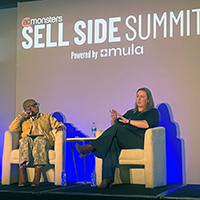If asked to name a union, I imagine many would gravitate towards one of the larger, albeit waining ones, the United Auto Workers. Name the last time that they went on strike, and unless you actively follow or have some direct connection to the industry, you probably don’t know. I love cars, but I know very little about the labor unions who build many of the domestic models as their strikes do not impact my life. The same doesn’t hold true when the grocery store workers or mass transit workers strike. Those interrupt millions of lives, and when they strike, you know. Currently, it’s another union’s turn to strike; they represent a large and powerful group whose work, similar to the auto industry, impacts millions of lives. Similar to the auto industry though, their work might impact tens if not hundreds of millions of people and billions in dollars, but it outside of a news item, the vast majority of those that enjoy their work won’t know. If you live outside of Los Angeles and New York, especially if you belong to the DVR generation, you might not even know that the people behind the people, i.e. the members of the Writers Guild of America (WGA) have put down their pens and pencils, this being the sixth week of their strike. Many of us, myself included, have just started to realize what this strike means, and unfortunately, for those organizing the strike, they meant for it to secure their future. Instead, it looks like it will do just that for ours.
Ask six weeks ago those in the television industry, and you hear terms like long awaited and a forgone conclusion as to the likelihood of the writers strike. What made them walk? Money of course, and while they technically have a total of 26 points of contention, some of the biggest involve digital media, specifically content on the Internet. Those of us in the Internet advertising space will, like all the analysts before us, agree that online video and consumption of media online will change the economics and the landscape of Internet advertising. We see the ripples already with Google’s billion dollar acquisition of YouTube, the emergence of heavyweight backed Hulu, the hype from the Skype founders’ Joost, and many more. We aren’t the only ones. The writers behind the content, material that arguably makes up the vast majority of online consumption, see it too, and they don’t want to miss out on the upside that their content creates, something they felt happened with DVDs. Add to that networks playing fewer and fewer reruns, thus paying less to writers, showing them instead online, something that currently brings them limited to no money. Complicating matters, the WGA also wants those who write for reality shows counted among its ranks, who currently are part of a separate larger union, the International Association of Theatrical Stage Employees.
The exact issues are extremely complex as it involves an already overly complex, and many would say outdated, system for determining compensation. We spent hours trying to understand the specifics only to come away shaking our heads, unsurprised that the two sides would find it hard to modify their existing methods to the ever increasing in importance but hard to predict future of digital media consumption. Ron Grover sums it up best in his Business Week article, "Hollywood union strikes have never been a dainty affair. On one side, you usually have powerful people with tons of money and even weightier egos. On the other side, you often have famous people (who also happen to have some money and fair-sized egos) and people who aspire to be famous (and one day have the wealth and ego-boost that fame brings). So as the writers’ strike heads toward its seventh week with no end in sight, you know there won’t be a quick, easy, or quiet end to the walkout called by the 8,000-member Writers Guild of America."
The WGA wants change, but their choice in timing could use some improvement as, in our view, it looks like the equivalent of Yahoo employees deciding to strike right after Google AdWords launched. In the case of Google, they didn’t need Yahoo to strike to become the dominant player. Just as the eventual victor here might not need this group to go on strike, but it certainly doesn’t hurt. Regardless, the WGA strike looks ready to end badly for them, not the least of which is a seemingly scripted but real plot twist – a contract renewal coming up with yet another group, the Directors Guild of America, one that has a much less contentious reputation with "the suits," and if they come to an agreement before the WGA, it could lay the groundwork for the latter to end up with something even less than what they might get now. The suits have already started giving money back to advertisers, NBC returned $10 million, because this season’s eyeballs didn’t meet expectations, so it doesn’t come as a surprise why they might take their time before trying to give out more.
This waiting game means a lot of things; for example, we know it will mean much more reality show content, and it looks to change, if not table, the new show rollout process, i.e. the pilot season. All of which has us believing that with all eyes online (plot twists and extra complications aside), the real winner will be those already in the digital media space. Advertisers, fed up with the existing system will more quickly embrace what online offers or at the least start to see it as not just emerging but immediate. Likewise those who make content online could now find new models in place for the adaptation of their content to the broader screens. The writers might have started this but they only validate what investors and users have already displayed. Fans of "Lost", "Heroes", "24" and other so-called scripted shows might lose out just as the writers have, but it might become a small sacrifice for the opportunities and security that comes from the brighter future of online.
For additional reading, see MediaPost editor Joe Marchese’s article, especially the comment from a Guild member.



